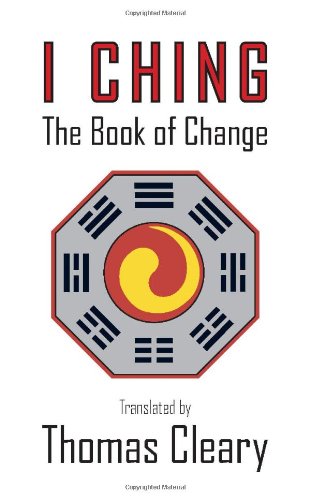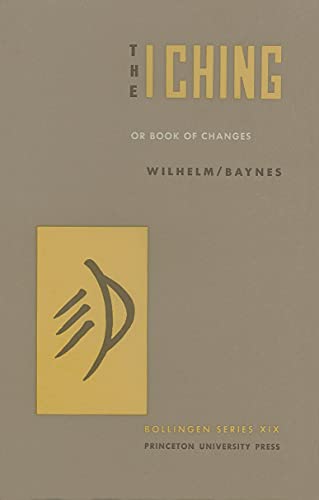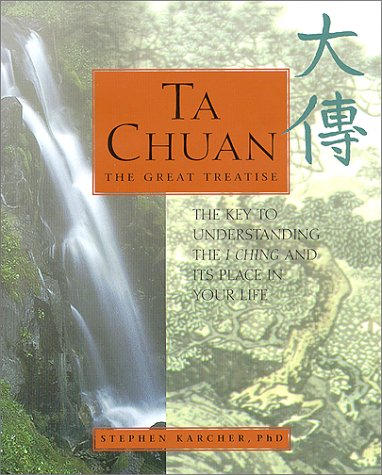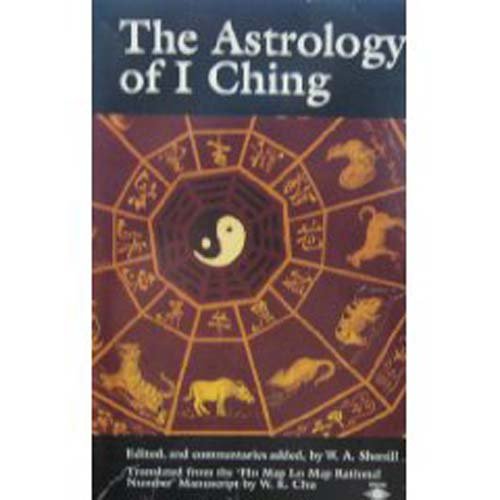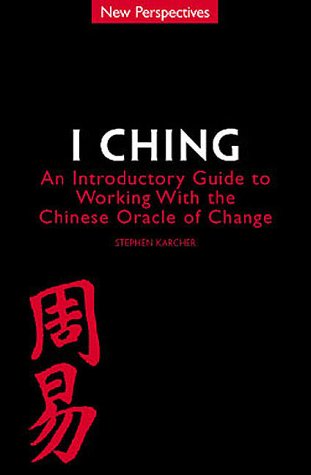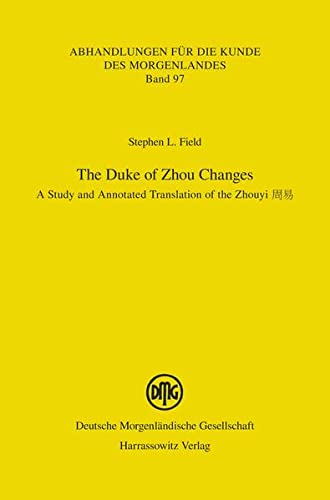What are
/r/iching's
favorite Products & Services?
From 3.5 billion Reddit comments
The most popular Products mentioned in /r/iching:
The most popular Services mentioned in /r/iching:
The most popular Android Apps mentioned in /r/iching:
The most popular reviews in /r/iching:
The Princeton Univ. / Bollinger version is here:
https://www.amazon.com/Ching-Book-Changes-Bollingen-General/dp/069109750X/
And this also has a Kindle version.
Chinese ZhouYi scholars have identified a ton of extraneous info - pieces of love poems, recips, technical instructions, etc. It did start out as an oral tradition, but it's been expanded a LOT.
The Original I Ching goes into some of this: https://smile.amazon.com/gp/product/0804841810
If you mean how many times each character occurs, that's information you can find in a concordance (this is one that provides English, for instance), or just by opening a Chinese text of the Zhouyi and using ctrl-F on your character of interest.
If you mean how many links between characters, the formula is the number of combinations of 2 that can be chosen out of the total number of occurrences (or "n choose 2"). In the case of 貞, that adds up to 6105 lines.
Ah yes. Availability. That is a challenge. You'll have to resort to a library:
Although I see here https://books.google.nl/books?id=HJhKAQAAMAAJ&redir_esc=y that it HAS been digitized. Hmmm....now how to get a copy of it...
I'm not a student in Chinese philosophy, but I've read Javary's book and what he explains is this: first they used oracle bones (from beef i believe?) then they used turtle shells and after they have killed over 1 million turtles for divination, the species was almost extinct and they started using yarrow stalks and/or coins.
Now as for why coins or stalks the two are different in that they don't have the same probabilities, and also it takes a lot more time to get an answer with stalks.
On the spiritual side, it is very clear that every single thing that you see around you has a spiritual meaning. For example, Sri Ma Anandamayi has explained that even a leaf falling from a tree has a spiritual meaning. With that set of mind it is pointless discussing which of yarrow stalks or coin are better to use: our inability to understand is what matters the most.
There are so many interpretations of the I Ching--from the original Legge translation to Wonder's Way, a Christian adaptation of the texts. I recommend using the "Look Inside" feature of Amazon and preview a few and see which one resonates.
I actually started with Wonder's Way and then a bunch more and now I mostly I use Brian Brown Walker's. If you'd like to learn more about the I Ching itself, I recommend Understanding the I Ching.
​
Lol that's a good deal. The only thing I see on amazon is a set that's $22.81, it shows 4 rolls but the description says it's only 5
It's a really good translation and app. This one and another great one:
https://itunes.apple.com/us/app/yi-jing-i-ching-book-of-changes/id311377342?mt=8
so far are only in IOS. My other favorite app that's on both is:
https://play.google.com/store/apps/details?id=com.brianbrownewalker.ic&hl=en
There is a book called The Astrology of I-Ching (see the commentary by Mesker). It presents a complete and very complicated, cryptic method of obtaining readings based on Chinese astrology, but its value for a beginner is that it also includes a translation of the I-Ching, and commentaries by the translator, who has studied some very ancient methods of interpretation. The text and commentaries are easier to follow than those of the sometimes very cryptic Wilhelm translation. This mode of I-Ching interpretation, based on knowledge of the trigrams' element correspondences, has been much neglected even in China, and is only now becoming more wide spread. You can also download it in djvu format
Obviously you would need to make consulting the oracle a daily practice. Other than that, read the Tao Te Ching, by Laozi. I'd get the James Legge translation. Then I would move onto reading Ta Chuan, it's a commentary on the Yijing that was written during China's warring states period.
http://www.amazon.com/Ta-Chuan-Treatise-Stephen-Karcher/dp/0312264283
http://www.amazon.com/Tao-Ching-Dover-Thrift-Editions/dp/0486297926
Thanks, that did help! Follow up question; what do you think of Thomas Cleary's pocketbook version (this one which is a bare bones translation with a very short introduction)? I'm planning to use it as a portable version once I know the text better, but for now it's not very easily comprehensible without some further context. Any comments on the quality of translation?
